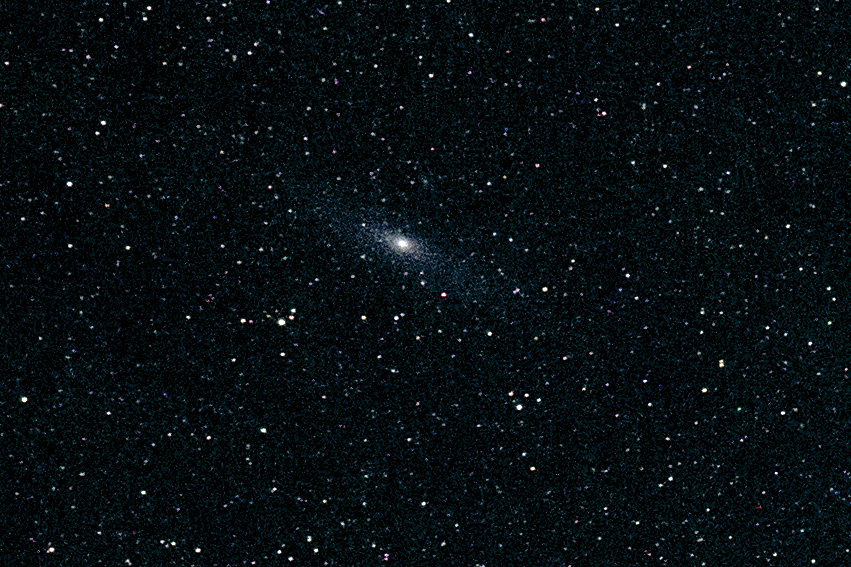
The galaxy far, far away, a universe born from the singular vision of George Lucas, has captivated generations. From its humble beginnings to becoming a global cultural phenomenon, Star Wars stands as a testament to Lucas’s unparalleled storytelling prowess. Yet, a decade after its monumental sale to Disney for $4 billion, the creator’s relationship with his enduring legacy has evolved into a complex narrative, marked by both admiration and a profound sense of creative displacement.
For years, fans have speculated, debated, and dissected every new installment of the Star Wars saga under Disney’s stewardship. Their reactions, often fervent and divided, mirror a sentiment expressed by the very architect of this beloved universe. Lucas himself has publicly admitted that certain core components, fundamental to his original trilogy, seemed to “get lost” in the subsequent stories produced by the new custodians of Lucasfilm. This admission offers a rare, invaluable glimpse into the mind of a visionary grappling with the continuation of his life’s work by others.
This in-depth exploration will delve into the multifaceted perspective of George Lucas, drawing directly from his most recent candid remarks at the 77th Cannes Film Festival and other rare public statements. We aim to unravel the layers of his critique, understanding not just *what* he believes was lost, but *why* his unique insight into the Star Wars universe remains so pivotal, even as he embraces a more diplomatic role in its ongoing journey. Join us as we explore the insights of the legendary filmmaker, offering a window into the delicate balance between creation, legacy, and letting go.
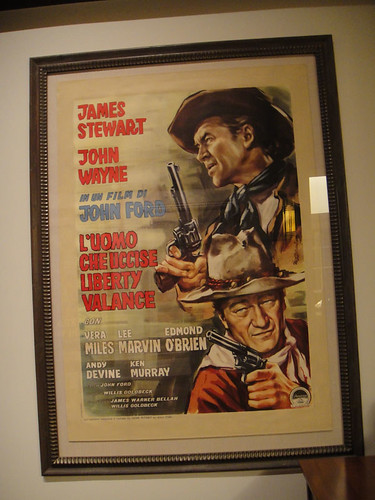
1. The Historic Lucasfilm Sale: A New Era for Star Wars
The sale of Lucasfilm to Disney in 2012 for a staggering $4 billion marked a seismic shift in the entertainment landscape. This wasn’t merely a business transaction; it was the transfer of one of the most iconic and beloved intellectual properties in modern history. For George Lucas, it signified a relinquishing of direct control over the universe he had meticulously crafted and nurtured for decades, a decision that would inevitably shape his future relationship with Star Wars.
At the time of the sale, Lucas, while stepping back from direct involvement, also transitioned into a new role: that of a significant Disney shareholder. This financial stake cemented his connection to the company and its future endeavors. His public support for Disney CEO Bob Iger, even amidst corporate battles, underscores a continuing admiration for the corporate entity that now shepherds his creation. As Lucas himself explained, “When I sold Lucasfilm just over a decade ago, I was delighted to become a Disney shareholder because of my longtime admiration for its iconic brand and Bob Iger‘s leadership.”
This strategic move reflected not just a businesssavvy decision, but also perhaps a desire to ensure the longevity and continued expansion of Star Wars under a powerful, established entertainment giant. While no longer the singular creative force, Lucas secured a future for his galaxy, albeit one that would evolve in directions he hadn’t directly authored. The sale, therefore, represents the foundational moment from which all his subsequent reflections and observations on the new Star Wars era spring, laying the groundwork for both collaboration and critical distance.

2. Lost in Translation: Lucas’s Core Concerns with Disney’s Vision
Central to George Lucas’s recent commentary on the Star Wars saga under Disney is his poignant observation that “a lot of the ideas that were in [the original] sort of got lost.” This statement, delivered with a measured diplomacy at the Cannes Film Festival, speaks volumes about the creative disconnect he perceives. It’s not a blanket condemnation of the new productions but rather a nuanced critique that suggests a departure from foundational thematic and narrative elements he painstakingly embedded in the original trilogy.
Lucas, as the sole architect of this intricate universe, possessed an intimate understanding of its philosophical underpinnings and thematic core. His concern isn’t merely about plot points or character arcs, but about the deeper conceptual framework that defined Star Wars for him. He implies that the essence, the very spirit he instilled, became diluted or misconstrued when new storytellers took the helm, perhaps struggling to fully grasp the intricate tapestry he had woven.
This sentiment resonates with the “mixed responses” that fans themselves have often expressed towards the new movies and TV shows. While Lucas acknowledges that such reactions are part and parcel of transferring a creative property, his specific articulation of “lost ideas” provides a unique perspective from the man who knows the Star Wars universe better than anyone else. His words serve as a powerful reminder that while stories can evolve, their fundamental truths, in the eyes of their creator, are sacrosanct and often difficult to replicate.
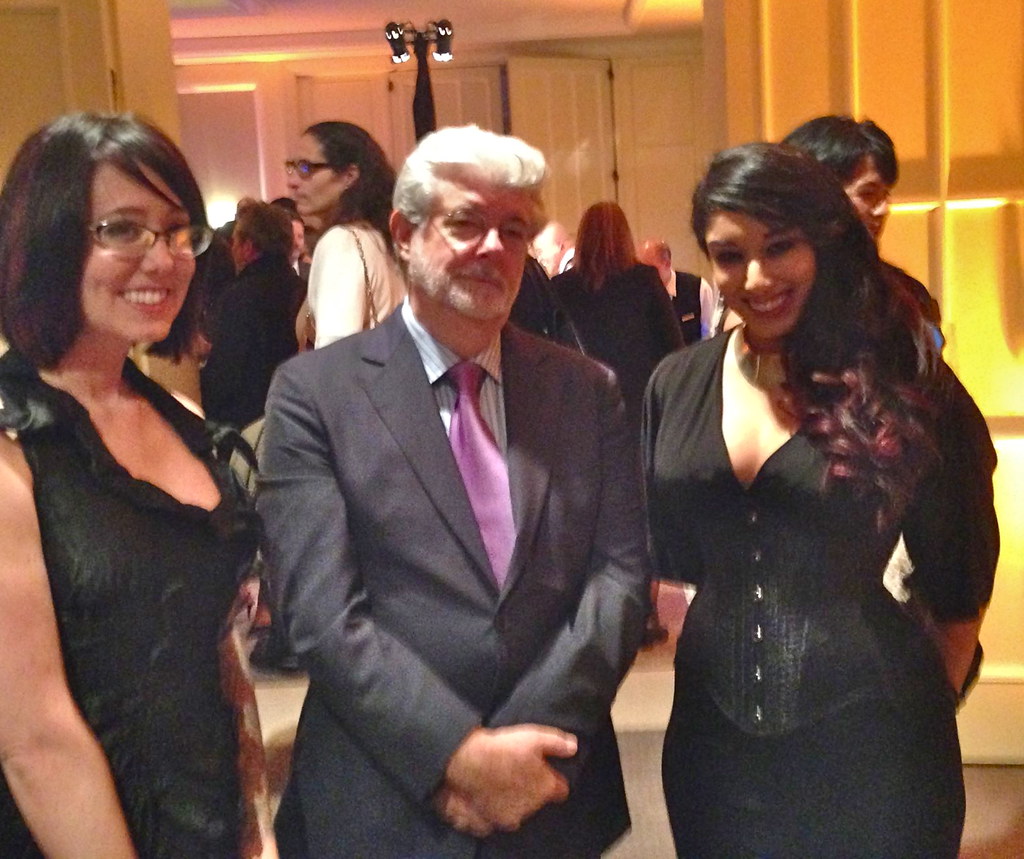
3. The Force Unseen: Lucas’s Unique Understanding of the Galaxy’s Mysticism
Perhaps the most profound point of divergence George Lucas identifies concerns the very heart of Star Wars: the Force. With a clarity that underscores his singular vision, Lucas stated, “I was the one one who really knew what Star Wars was… who actually knew this world, because there’s a lot to it. The Force, for example, nobody understood the Force.” This declaration isn’t a boast but a deeply felt conviction born from years of conceptualizing and building a unique mythological framework.
For Lucas, the Force was never just a plot device or a source of powers for Jedi Knights. It was a cosmic energy field, an omnipresent mystical bond connecting all living things, embodying philosophical principles of balance, interconnectedness, and the eternal struggle between light and darkness. His original vision was imbued with these deeper spiritual and moral dimensions, elements that, he suggests, were not fully grasped or faithfully translated by subsequent creative teams.
This perceived misunderstanding of the Force highlights a fundamental challenge in handing over a deeply personal creation. The nuances, the unwritten rules, and the philosophical weight that Lucas imbued into this central concept were, in his view, unparalleled and perhaps inimitable. His words imply that without this foundational comprehension, any new narrative venturing into the Star Wars galaxy risks losing its soul, becoming a mere shell of its original, profound identity.
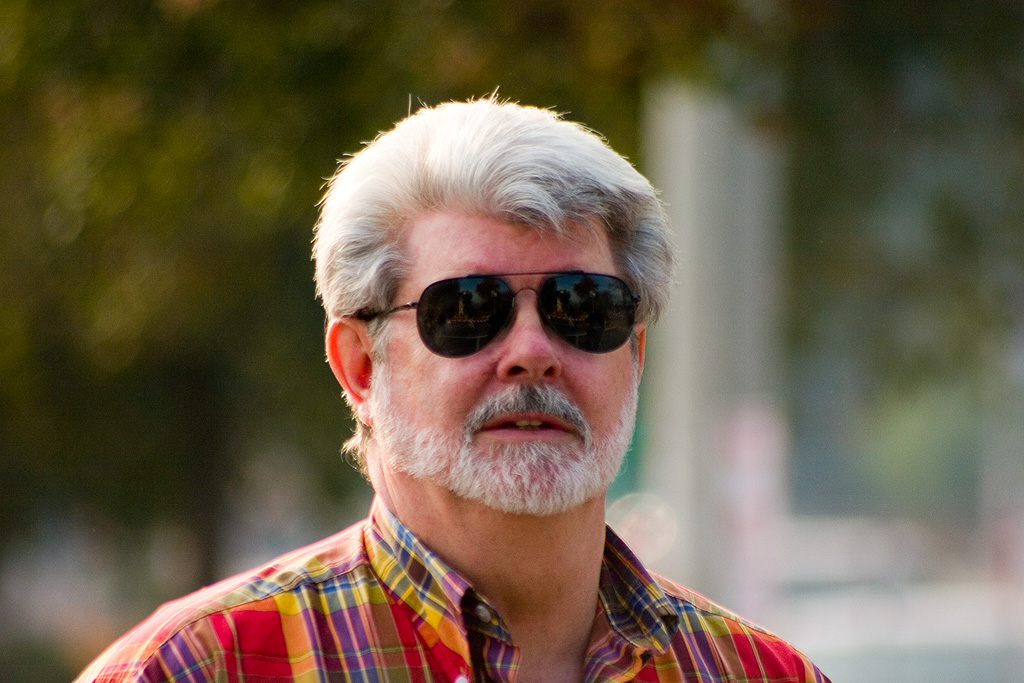
4. A Diplomatic Stance: From “White Slavers” to Nuanced Critiques
George Lucas’s recent appearances and comments, particularly at the Cannes Film Festival, showcase a remarkably “diplomatic approach” to discussing the Star Wars sequel trilogy. This stands in stark contrast to earlier, more fiery remarks he made, notably when he referred to Disney as “white slavers” less than a decade ago. The evolution in his public discourse reveals a conscious effort to adopt a more measured and perhaps reconciled perspective on the franchise’s trajectory.
His present-day statements, such as “a lot of the ideas that were in [the original] sort of got lost,” while critical, are delivered without the previous vitriol. This shift might be attributed to various factors: the passage of time, an acceptance of his new role as an observer, or a strategic decision to support the company he is now invested in. Whatever the underlying reasons, this newfound diplomacy allows for a more open dialogue, presenting his insights as observations rather than outright condemnations.
This diplomatic turn is not to be mistaken for a retraction of his core concerns, but rather a reframing of them. It demonstrates a sophisticated understanding of how to engage with a sensitive topic, expressing creative differences without igniting further controversy. His words still carry immense weight, but they are now delivered from a position of detached wisdom, allowing his critical analysis to be absorbed through a lens of respect for the franchise’s continued journey.
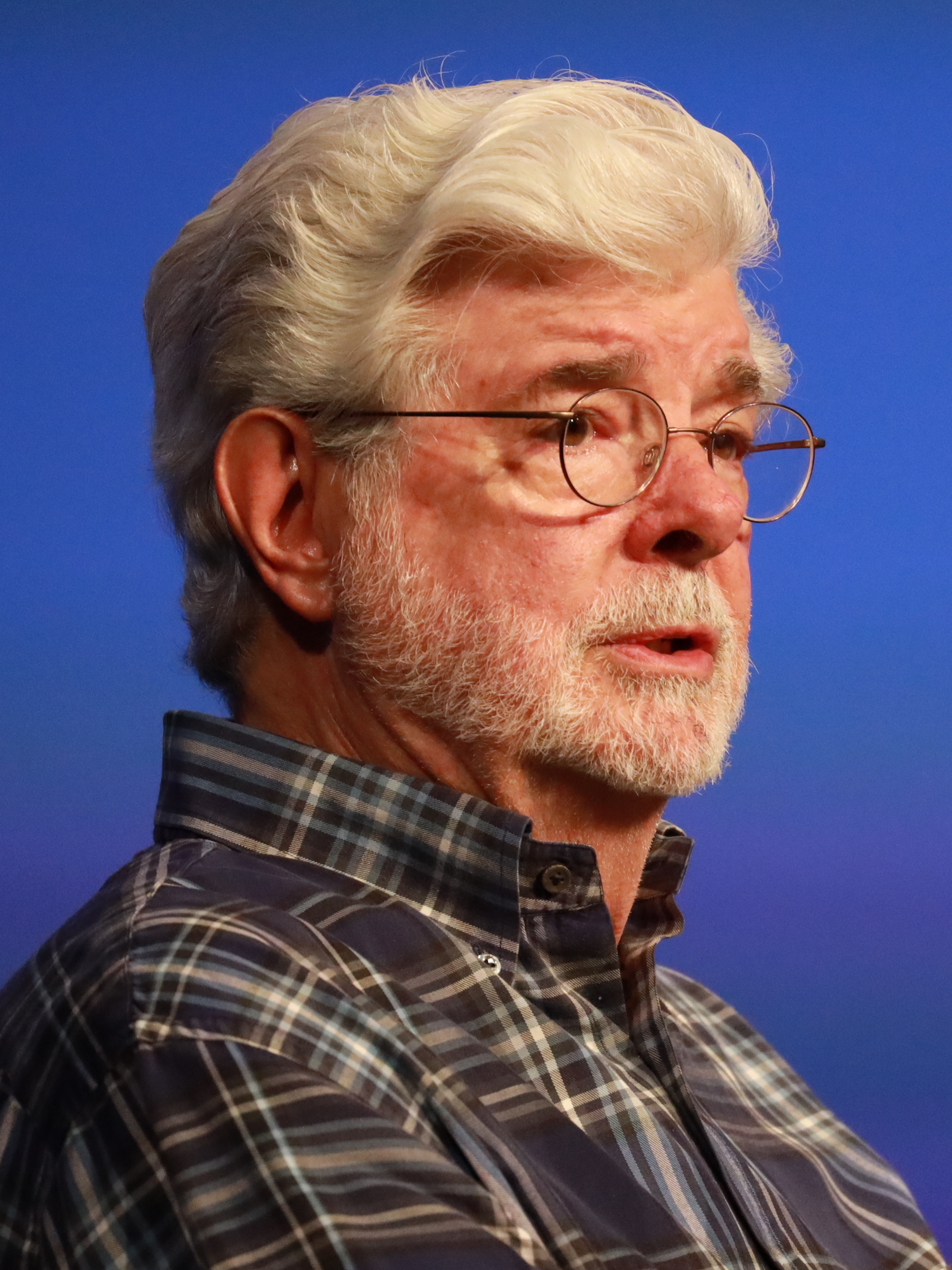
5. The Creator’s Dilemma: Accepting the Legacy’s New Path
A profound element of George Lucas’s commentary is his ultimate acceptance of the situation: “But that’s the way it is. You give it up, you give it up.” This philosophical resignation speaks to the challenging reality faced by any creator who sells their intellectual property. The act of divesting Lucasfilm meant relinquishing absolute creative control, a severance that, while perhaps painful, Lucas appears to have come to terms with.
This acceptance isn’t born of indifference, but rather a mature understanding of the transactional nature of his decision. He actively chose to step away, and with that choice came the inherent understanding that the saga would continue under different creative hands, inevitably evolving in ways he might not have envisioned or preferred. It’s a pragmatic acknowledgement that once a creation is released into the world, especially one of such magnitude, its destiny is no longer solely its originator’s.
Despite his reservations about lost ideas, Lucas’s public stance demonstrates a remarkable capacity to move forward. His ongoing support for Disney and Bob Iger, coupled with his visits to sets, reflects a continued engagement with the Star Wars universe, not as its controller, but as a revered elder statesman. This duality – acknowledging creative differences while embracing the reality of his relinquished ownership – highlights the complex emotional journey of a visionary who has given his life’s work to the world.
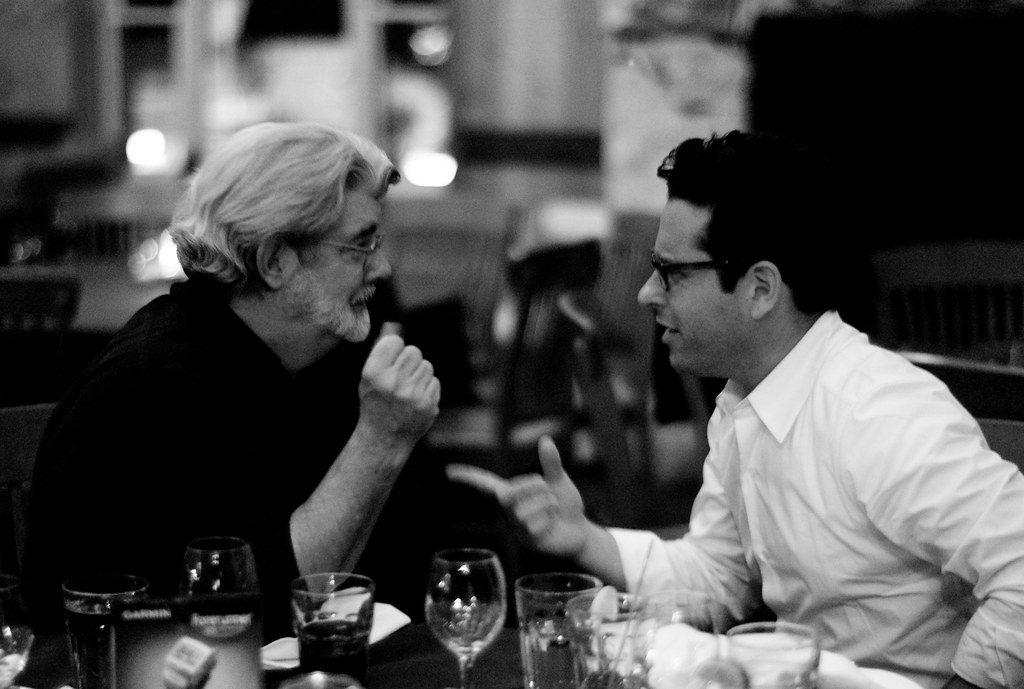
6. Behind the Scenes: Lucas’s Continued Presence and Jedi-like Influence
Even without direct involvement in crafting the new narratives, George Lucas remains a revered and influential figure within the Star Wars ecosystem. His occasional visits to the sets of various projects, such as *Star Wars: Andor*, underscore his enduring connection to the galaxy he brought to life. These appearances are not merely symbolic; they are moments of deep reverence from those now tasked with continuing his legacy.
Second unit director Sam Hargrave’s recollection of Lucas’s visit to the *Andor* set is particularly telling. Hargrave likened the experience to “witnessing a real-life Jedi master,” noting the extraordinary atmosphere Lucas’s presence created. “There was more people there that day than any other day on any other, you know, episode of the whole season. That was as if you were at Comic-Con on the stage where he was. It was crazy,” Hargrave shared, illustrating the almost mythical status Lucas holds among cast and crew.
This continued consultation with filmmakers, even if not directly dictating story beats, allows Lucas to impart his unique insights and wisdom. His presence acts as a living bridge to the saga’s origins, a direct link to the creative spark that ignited it all. While he may no longer hold the reins, his ‘Jedi Master’ influence persists, subtly guiding and inspiring those who now carry the torch, ensuring that some essence of his original vision, even if only through inspiration, continues to touch the unfolding narrative.
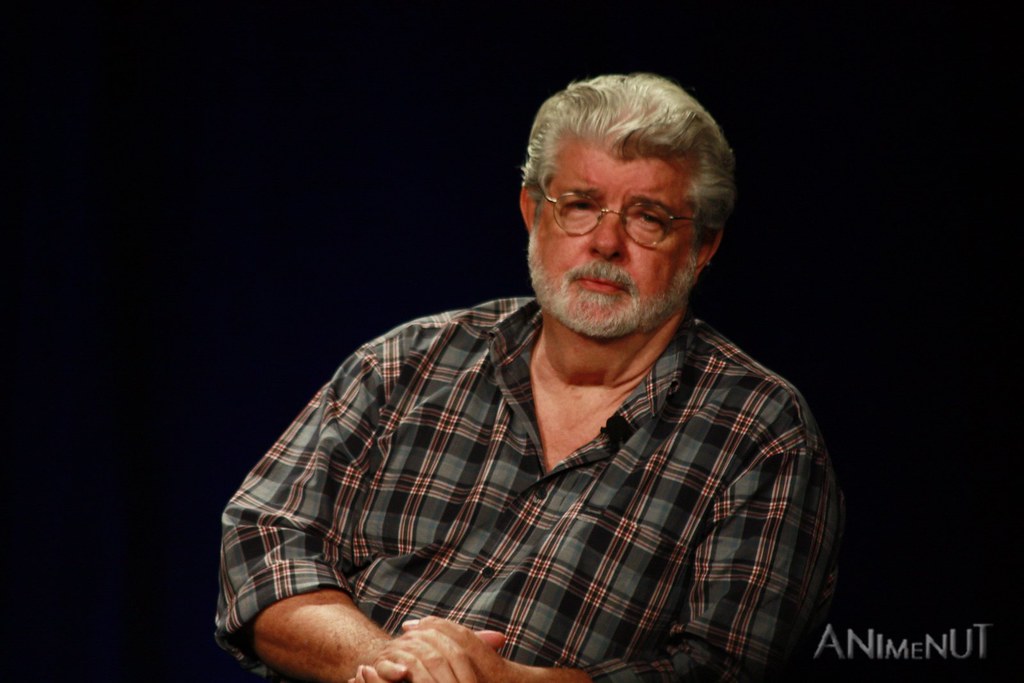
7. The Director’s Cut: Defending Artistic Prerogative
Beyond his observations on the new Star Wars saga, George Lucas has consistently championed a fundamental principle of filmmaking: the inherent right of a creator to shape their vision. At the Cannes Film Festival, he articulated this conviction with clarity, stating, “I’m a firm believer that the director, or the writer, or the filmmaker should have a right to have his movie be the way he wants it.” This statement is not merely a philosophical musing but a deeply personal defense, rooted in his own experiences with the original Star Wars trilogy.
Lucas himself famously revisited and digitally enhanced his original films, a series of edits that sparked fervent debate and, at times, outrage among fans. His declaration at Cannes thus serves as a powerful retrospective justification for these controversial choices. It underscores his belief that the original artistic intent, and the evolving vision of its creator, should ultimately take precedence over external expectations or historical preservation, positioning the filmmaker as the final arbiter of their work’s definitive form.
This unwavering stance on artistic autonomy speaks to the broader struggle many visionary creators face in safeguarding their work. Lucas, through his own actions and words, asserts that a film, much like any piece of art, is a living entity, subject to its creator’s evolving perspective. It reinforces the idea that true creative control means having the freedom to refine, reinterpret, and even alter one’s masterpiece, ensuring it aligns with the artist’s ultimate aesthetic and thematic goals.
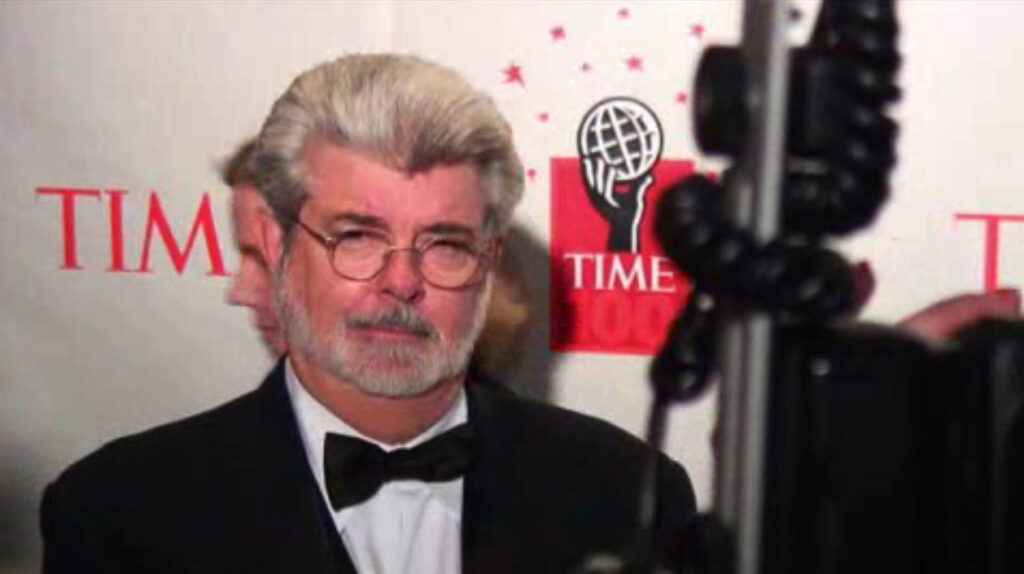
8.A Strategic Alliance: Lucas’s Endorsement of Bob Iger
In a surprising display of corporate solidarity, George Lucas publicly threw his weight behind Disney CEO Bob Iger during a recent proxy battle for control of the company. This endorsement, delivered earlier this year, underscored Lucas’s enduring connection to the corporate giant that now stewards his creation. It also revealed a pragmatic appreciation for the leadership currently guiding the expansive Star Wars universe, a testament to his long-standing admiration for the Disney brand itself.
Lucas’s statement, “When I sold Lucasfilm just over a decade ago, I was delighted to become a Disney shareholder because of my longtime admiration for its iconic brand and Bob Iger’s leadership,” offered a rare glimpse into his corporate loyalty. This wasn’t merely a polite nod; it was a strategic intervention during a high-stakes corporate struggle. His position as a significant Disney shareholder certainly informed this public stance, aligning his financial interests with Iger’s continued leadership.
This public backing showcases a more nuanced aspect of Lucas’s relationship with Disney than simply a creator critical of new narratives. It highlights his continued engagement with the company at a high level, recognizing the intricate balance between creative vision and corporate stewardship. His voice, carrying immense weight in the entertainment industry, served as a powerful vote of confidence, demonstrating his trust in Iger’s capacity to navigate the complexities of a global entertainment empire.
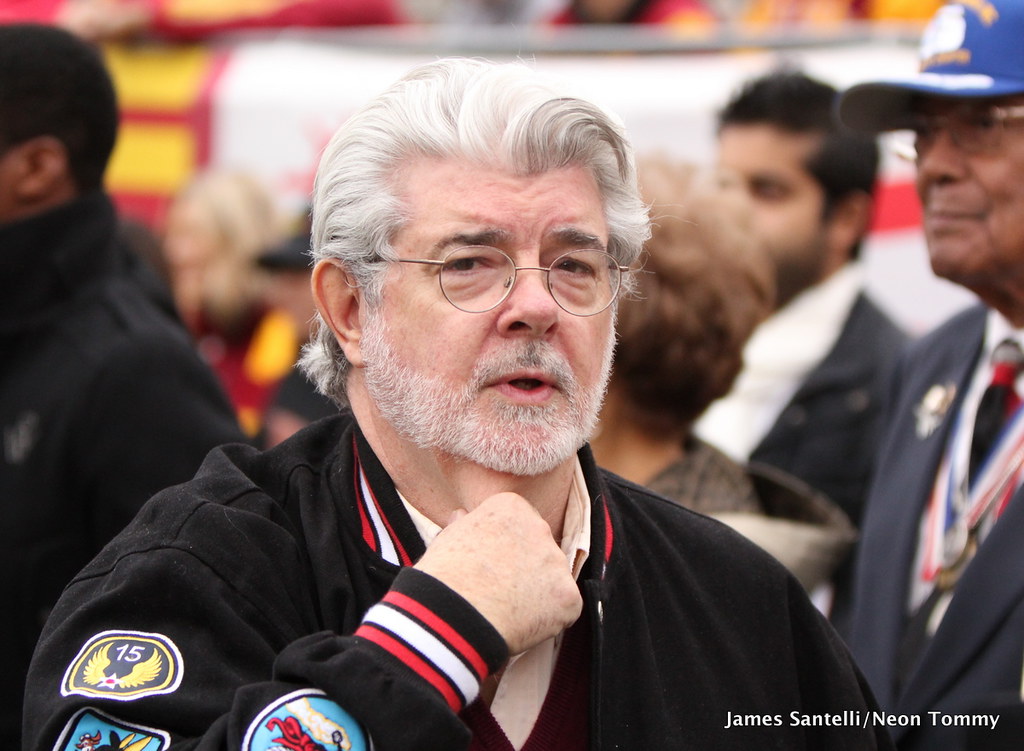
9. Beyond Critique: Advocating for the Franchise’s Soul
While George Lucas has candidly shared his reservations about certain aspects of the new Star Wars trilogy, his role extends beyond mere critique. He has also emerged as a staunch advocate for the franchise against its detractors, particularly concerning broader cultural criticisms. At Cannes, Lucas notably addressed accusations of Star Wars lacking diversity and offered a robust defense of his original vision for the prequel trilogy, positioning himself as a protector of the entire saga’s legacy.
This defense highlights Lucas’s enduring commitment to the universe he forged, even when others are at the creative helm. His comments against criticisms of diversity, for instance, transcend the specific merits of Disney’s projects, speaking instead to the core values and inclusivity he envisioned for his galaxy. He implicitly reminds audiences that the Force, and the narrative tapestry woven around it, was always intended to be universal, welcoming myriad interpretations and representations.
Furthermore, Lucas’s reiteration of his original vision for the prequel trilogy serves as a powerful validation against years of fan and critic backlash. By explaining his creative intent, he not only defends his past work but also implicitly advocates for the narrative integrity of those films as integral components of the Star Wars canon. This comprehensive advocacy underscores his profound investment in the franchise’s overarching cultural significance, ensuring its foundations remain understood and respected.
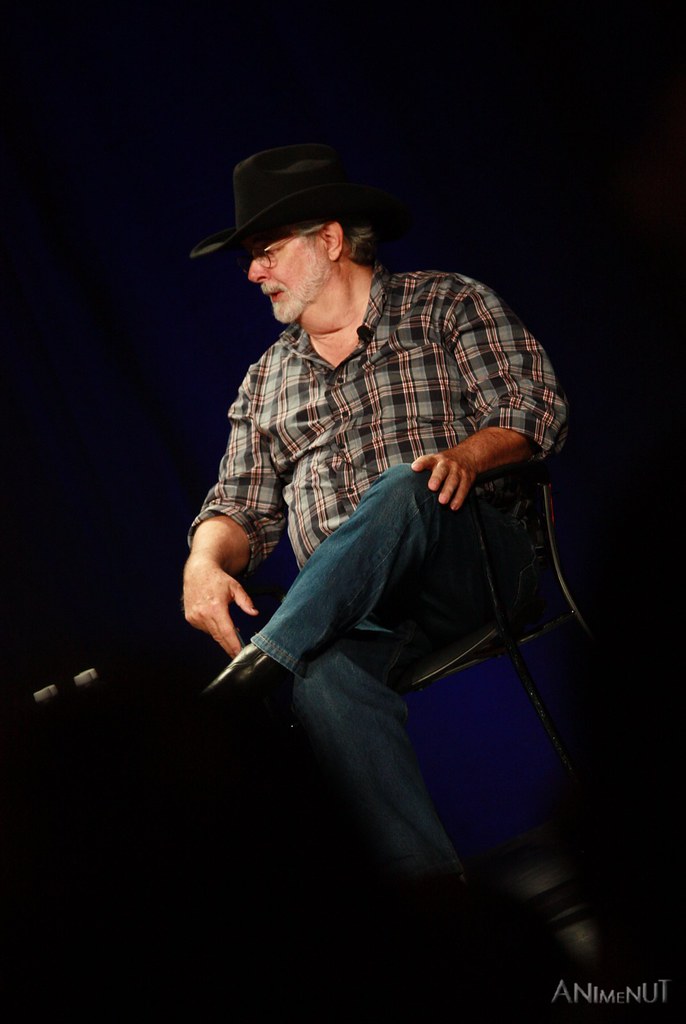
10. The Philosopher’s Acceptance: The Art of Letting Go
George Lucas’s journey with Star Wars culminates in a profound philosophical acceptance, summarized by his poignant remark: “But that’s the way it is. You give it up, you give it up.” This statement, delivered with a calm resignation, encapsulates the challenging emotional process of a creator releasing their life’s work into the hands of others. It’s an acknowledgment not of defeat, but of the inherent nature of intellectual property ownership and the necessary detachment that follows.
For a visionary like Lucas, who meticulously crafted every facet of the Star Wars universe for decades, this letting go is an act of immense emotional weight. It signifies moving from the role of an absolute sovereign to that of an esteemed observer. His words reflect a mature understanding that while the genesis of creation belongs to the individual, the legacy, once released, takes on a life of its own, subject to new interpretations and directions.
Indeed, Lucas’s ability to transition from a position of absolute creative control to one of diplomatic observation is a testament to his wisdom. Twelve years after the sale, he can now “look on like the rest of us,” experiencing the unfolding narratives with a blend of insight and detachment. This philosophical stance allows him to appreciate the continued evolution of Star Wars, even as he quietly holds onto his unique understanding of its core essence.
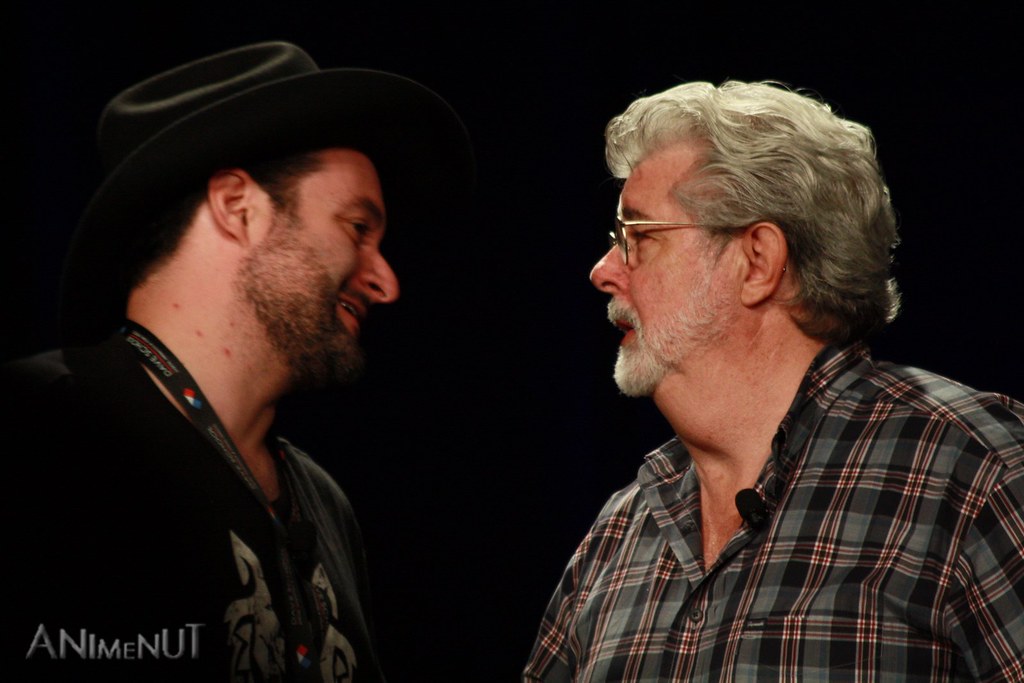
11. The Enduring Resonance: The Weight of His Words
Even after relinquishing creative control, George Lucas’s comments on Star Wars continue to resonate with unparalleled authority. His recent remarks at the 77th Cannes Film Festival, described as his “most comprehensive thoughts on Star Wars in years,” are devoured by fans and industry insiders alike. The enduring weight of his words stems from his singular position as the architect of this beloved mythology, granting his observations a unique and often definitive gravitas.
His critiques, though now expressed with a remarkable diplomacy, carry an undeniable impact. When Lucas states that “a lot of the ideas… sort of got lost,” it’s not simply a fan’s opinion; it’s a pronouncement from the very creator who understood the intricate tapestry of the Force and its narrative implications better than anyone else. This creates an implicit benchmark against which all subsequent Star Wars productions are measured, whether consciously or unconsciously.
Lucas’s detached wisdom allows his critical analysis to be absorbed through a lens of respect for the franchise’s continued journey, rather than seen as an attack. His voice remains a guiding star, providing essential context and philosophical depth to a universe that has become a global cultural touchstone. Every word he utters about Star Wars carries the echo of its genesis, ensuring his insights remain pivotal in understanding its past, present, and future.
Read more about: Michaela DePrince: A Ballerina’s Legacy, A Name’s Journey, and a Life Cut Short at 29
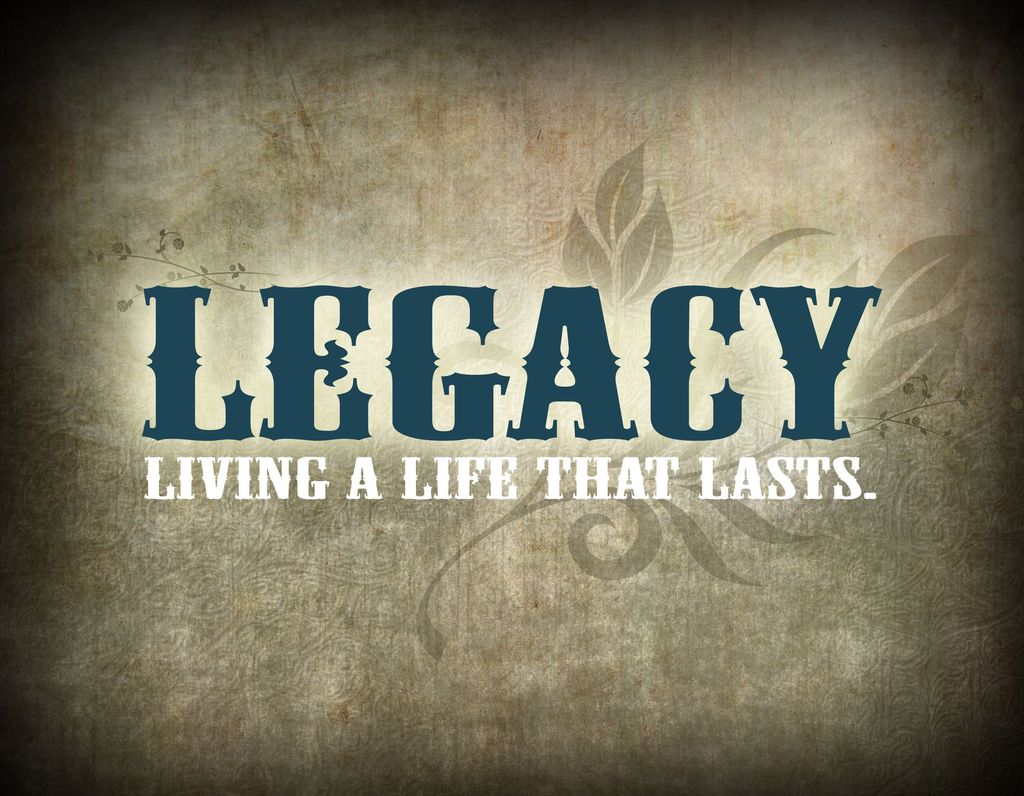
12. The Unbreakable Bond: A Creator’s Everlasting Legacy
Despite the monumental sale and the passing of creative reins, George Lucas’s bond with the Star Wars universe remains unbreakable. His occasional visits to the sets of various projects, and his continued consultations with filmmakers, are not just acts of reverence towards him; they are manifestations of an inherent, lasting connection that transcends ownership. Even without directly crafting stories, the storyteller remains deeply invested, a silent guardian of the galaxy’s spirit.
This enduring engagement speaks to a fundamental truth about creation: a masterpiece, once born, retains a piece of its originator’s soul. Lucas, likened to a “real-life Jedi master” on set, continues to inspire and influence, ensuring that the foundational magic he ignited persists. His presence acts as a living bridge to the saga’s origins, imparting wisdom that subtly shapes the evolving narrative, even in his absence from direct authorship.
Ultimately, George Lucas’s journey with Star Wars is a profound narrative of creation, relinquishment, and enduring legacy. He built a universe, nurtured its growth, and then, with philosophical grace, released it to the world. Yet, his influence, his insights, and his unique understanding of the Force will forever be woven into the fabric of Star Wars, securing his place not just as its creator, but as its eternal visionary, forever connected to the galaxy far, far away.



